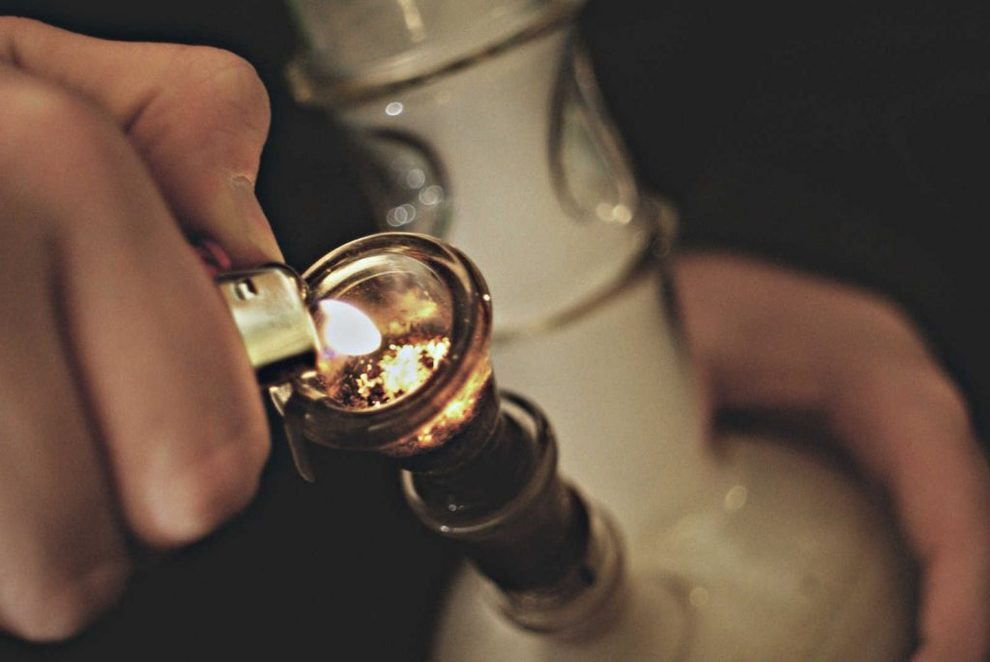[et_pb_section fb_built=”1″ _builder_version=”4.16″ global_colors_info=”{}”][et_pb_row _builder_version=”4.16″ background_size=”initial” background_position=”top_left” background_repeat=”repeat” global_colors_info=”{}”][et_pb_column type=”4_4″ _builder_version=”4.16″ custom_padding=”|||” global_colors_info=”{}” custom_padding__hover=”|||”][et_pb_text _builder_version=”4.18.0″ background_size=”initial” background_position=”top_left” background_repeat=”repeat” hover_enabled=”0″ global_colors_info=”{}” sticky_enabled=”0″]
A new member at Allies writes in wondering how to handle her son’s pot use during his recovery from heroin—the outpatient program he’s attending suggests letting it slide for now…
This post originally appeared on our Member Site blog, where experts respond to members’ questions and concerns. Take advantage of our current special offer today and get full access to Allies in Recovery’s eLearning program. Details here.
“I am new to this program, and I very much appreciate all that I have learned here. My son is a recovering heroin addict. When he was released from treatment, he tried going into a sober living house nearby. That didn’t work out, and against our better judgment, we let him move back in with us. Things quickly started to deteriorate once he got home, and he relapsed with weed. We tried to get him back into in-patient treatment, but insurance would not approve it because it was just pot. He is attending outpatient treatment, but he continues to use pot, sometimes pretty heavily.
I started researching the internet and found out about your program. I have been implementing the positive talk with him for a couple of days now. One thing that is really frustrating is he continues to smoke pot in our house. The treatment center does not recommend kicking him out, and my heart tells me they are right. I have asked him nicely to stop doing this in my house feeling that I should be able to have some boundaries. I just do not know an effective way to put a stop to this. Any advice you have would be greatly appreciated. Thank you so much again for creating this website. I am so impressed with it. I wish I had known about it 5 years ago. Thanks again!”
Dominique Simon-Levine explains how this mother should handle her son’s new pot smoking habit
Your son came home from treatment and has since started using marijuana. He is still abstinent from heroin. From what you wrote, the outpatient place he is now attending knows he is using marijuana and has counseled you to not kick him out.
A couple points about the marijuana. Is marijuana a new drug for your son? Or has he always been a marijuana user? Many people quit their drug of choice and go onto “the marijuana maintenance plan.” Marijuana is easily available, relatively inexpensive, it has few dramatic and chaotic consequences, and gets you high. Perhaps not the way your drug of choice gets you high, but it’s a high. The outpatient treatment program is likely addressing the marijuana to some extent, but probably views it as less harmful than a return to the heroin use. For some treatment programs, marijuana hardly moves the needle, as you found out when your insurance company refused to pay for inpatient treatment.
The fact that the program he is attending is talking to you suggests he has signed a release with the program. If they are counseling you to not ask him to leave your house, then they should also be willing to share their opinion about the marijuana and what they plan to do about it.
Pot as a last gasp drug
We are in a unique time right now. The danger of the opioid epidemic is changing how we treat substance use disorder, with marijuana often getting more of a pass. It is very true that keeping your son off of opioids is the number one concern right now.
Now, as before, people use pot as a last gasp drug before abstaining completely from all drugs. So the treatment program is, in all likelihood, dealing gently and patiently with his pot use, making him aware of it and suggesting he moderate or drop the amount he uses. It is also likely that they are helping him find alternatives to getting high, things that bring him even a modicum of pleasure, and helping him track the use of these things and their success against the pot use.
As a family member, I would want to hear some version of this from the treatment program. Hearing this would help with your decision about whether or not to hang on—tolerating some pot use and allowing him to continue to live with you.
Maintaining your boundaries
This does not mean he gets carte blanche to be high when he’s home. And this is the hard part, as you note in your question.
The marijuana use could form the basis of a family meeting, ideally with the treatment program, in which you calmly and lovingly acknowledge your son’s huge effort at coming off the heroin, but your unwillingness to see him high on pot in your home.
Learning Module 6, available on our member site, talks at length about this. Something like:
“You are welcome in this house when you are not high. If you need to get high, please wait until you come down to come home. It makes me so upset to see you high on anything. I understand that you are not done with the pot. I am willing to respect this. Please, in turn, respect my need to be calm and at peace in our home. I can’t have you high here. It completely ruins my mood. Can you understand this and respect this for now?”
And if he still crosses them…
If you suspect he is high at home (after some version of the above has been said to him), remove rewards:
- Don’t sit with him in the same room: go to another room…or put away dinner and go out;
- Keep a neutral stance: don’t say anything about the pot use, avoid being chatty.
Things are clearly not normal. You don’t accuse him, or bring up the fact that he looks high. You simply step away and rely on your gut to decide whether he is in fact high. Step away, remove rewards, and allow natural consequences to occur.
The next day, when he is no longer high, perhaps you review the particulars of the deal you had struck, and explain that if he can’t respect this need of yours, as a family you will need to help him find someplace else to live.
It’s a boundary—not that huge of a boundary—and one that you are going to have to hold. I hope your son tires of the pot quickly and learns that there are many other ways to enjoy life.
Thank you for writing in. Recovery from addiction is a process. It is very hard on the family. Thank you for being willing to be there for your son.
Yes, the family DOES have a role to play. Your stance, behavior, and choices DO make a difference. At Allies in Recovery we are absolutely convinced of this. “Tough love” is not a successful technique. Our learning platform is set up to help family members learn the techniques that will reduce conflict, build that bridge of communication, and be effective in guiding your loved one into treatment. Together we will move your loved one towards recovery. Learn more here.
[/et_pb_text][/et_pb_column][/et_pb_row][/et_pb_section]



